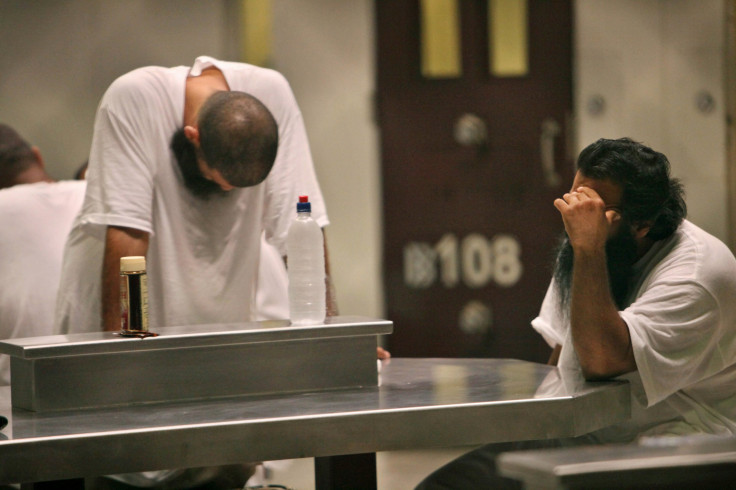CIA Torture Report: Bringing Criminal Charges Against Bush Administration Complicated And Possibly Fruitless Pursuit

Demand for a war crimes trial of U.S. officials reportedly complicit in the abuses by the Central Intelligence Agency following the Sept. 11, 2001 terrorist attacks are at an all-time high after the release of an exhaustive Senate Intelligence Committee report on torture. But the complicated jurisdictional and political nature of international law means pursuing charges on the international level could be a complicated and possibly fruitless endeavor.
The international community has limited jurisdiction when it comes to bringing charges against the citizen of any country that does not willingly allow that person to be tried. The International Criminal Court at The Hague was established in 1998 as a way of holding high-level state officials responsible for their actions against the people of other countries The U.S. is not a member, meaning that the ICC’s rulings are not binding in any way, but some of the countries where abuses reportedly occurred, like Poland, are members. That means the ICC could still try U.S. officials responsible for CIA actions, national security experts said.
“I think it’s possible they’ll try to file papers, but the actual likelihood of an ICC case coming to fruition is further evidence that international law only goes so far,” said Karen Greenberg, director of the Center On National Security at Fordham University’s School of Law. “But I think that it will send a chill through to a number of these top level officials about traveling.”
The Senate Intelligence Committee report outlines numerous abuses perpetrated by CIA interrogators against individuals connected, or suspected of having connections to, terrorists who perpetrated the 9/11 attacks in 2001. The report found evidence of interrogators stripping detainees naked, dragging them around their facilities and making death threats to them and their families. It also questions the legality of “enhanced interrogation techniques” employed by interrogators, like waterboarding, sleep deprivation and physical punishment, all of which were approved by the Department of Justice at the time.
Some human rights advocates have called for former President George W. Bush, Vice President Dick Cheney, Secretary of State Condoleeza Rice and others in Bush’s administration to be tried for the abuses. Bush, Cheney, Rice and others were referred to the ICC in 2010 by a team of prosecutors that later successfully levied war crimes charges against them in the independent and semi-symbolic Kuala Lumpur War Crimes Commission.
Francis Boyle, a prosecutor in the Kuala Lumpur case and a professor at the University of Illinois College of Law, filed that complaint, but it remains pending. He said it’s a good sign it wasn’t immediately dismissed and that the Senate Intelligence Committee report could be what convinces an ICC prosecutor to open an investigation.
“This is important because now we have an official branch of the U.S. government adopting and making these findings fact,” he said. “In addition to ICC prosecution, this now will help us pursue these individuals around the world [through the UN Convention Against Torture]. All states signed to that convention, of which the U.S. is one of them, is required to have domestic legislature in place to prosecute torture. It does seem that if any of these individuals go outside of the U.S., we can go after them.”
Boyle helped lobby the Swiss government to arrest Bush during a visit in 2011, which he, Human Rights Watch, and other rights groups said prompted Bush to cancel that trip. Bush’s spokesman said the group Bush was scheduled to speak to canceled because of security concerns.
Donald Rumsfeld, former defense secretary under Bush, nearly cancelled a trip to Germany in 2005 after prosecutors there initially threatened him with war crimes case, but later backed down. In addition, the U.S. has pursued over 100 “Bilateral Immunity Agreements” with foreign states that essentially bar that state from referring U.S. officials –current or former- to the ICC.
Boyle believes that bringing a case against Bush and his officials is crucial to rebuilding the ICC as a legitimate international court that doesn’t just go after “tin pot dictators” in Africa. He said he will submit follow-up appeals to the ICC after reading through the entirety of the Senate report.
Greenberg, meanwhile, thinks that the revelations in the Senate Intelligence Committee report are more important stateside and are critical for a country pulling itself out of years of abuses in the name of security.
“It puts the burden on the U.S. to face this and have a discussion,” she said. “One, [the current government] has to raise the possibility of prosecution. They might decide to not go down that road, but I think they need to raise that possibility and look into it. And two, they’re going to have to rethink oversight over intelligence community and rethink how that can be done with such a secret and guarded entity.”
The Department of Justice announced Tuesday it would not seek to prosecute any of the individuals named in the report.
© Copyright IBTimes 2025. All rights reserved.






















